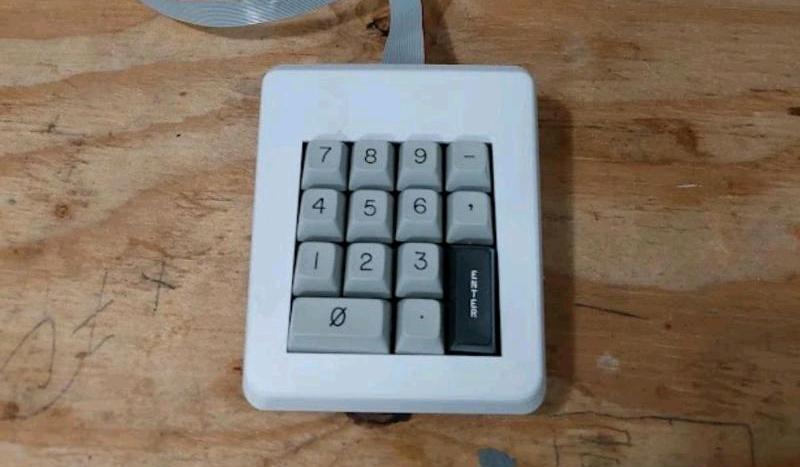[Evan] already had a working ADM-3A (a dumb terminal from 1976) but was starting to eye the accessories hungrily. He had only seen the numpad on Wikipedia and in the manual. So when he found some authentic stackpole numpads on a surplus sale, he grabbed them and converted them to be ADM-3A compatible.
Looking at the schematic for the ADM-3A, [Evan] figured out that the numpad was parallel to the keyboard matrix, not adjacent. This meant that pressing a five on the keyboard was electrically equivalent to pressing a five on the keyboard. So holding shift while punching on the numpad leads to some unexpected characters for those of us used to more modern keyboards. Since [Evan] only needed to make one or two of these, he soldered wires directly to switch contacts in the matrix that the ADM-3A expects. A 3d printed housing, some rubber feet, and a ribbon cable later, it was done. While it looks slightly different from the original, the vibe is right, and given that it is a stackpole switch, it has the same feel. With the spare numpads, he created a replacement PCB that runs QMK and connects to a more modern computer via USB-C. The files for the 3d printed housing are also up on GitHub, along with the PCBs and QMK configuration files.
If you’re interested in what more you can do with an ADM-3A, why not hook it up to a Raspberry Pi?
















“This meant that pressing a five on the keyboard was electrically equivalent to pressing a five on the keyboard.”
I assume that you meant for one of the instances of the word ‘keyboard’ in the above to be replaced with the word ‘numpad’ instead.